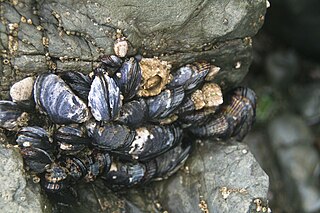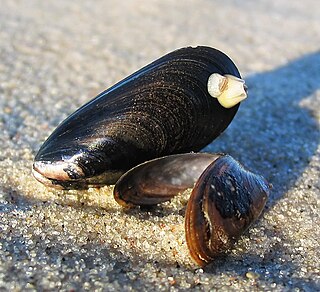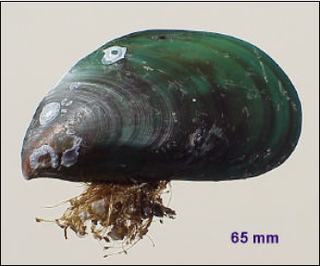
The Simple Things is a 1953 animated short subject, part of the Mickey Mouse series, produced by Walt Disney Productions. Released by RKO Radio Pictures on April 18, 1953, the short is notable as the final regular entry in the Mickey Mouse theatrical cartoon series. Following this short, one-shot Mickey shorts were produced: the featurettes Mickey's Christmas Carol (1983) and The Prince and the Pauper (1990), and the shorts Runaway Brain (1995), and Get a Horse! (2013).

Lake Powell is a reservoir on the Colorado River, straddling the border between Utah and Arizona, United States. Most of Lake Powell, along with Rainbow Bridge National Monument, is located in Utah. It is a major vacation spot that around two million people visit every year. It is the second largest man-made reservoir by maximum water capacity in the United States behind Lake Mead, storing 24,322,000 acre feet (3.0001×1010 m3) of water when full. However, due to high water withdrawals for human and agricultural consumption, and because of subsequent droughts in the area, Lake Mead has fallen below Lake Powell in size several times during the 21st century in terms of volume of water, depth and surface area.

A byssus is a bundle of filaments secreted by many species of bivalve mollusk that function to attach the mollusk to a solid surface. Species from several families of clams have a byssus, including the pen shells, the true mussels and the false mussels: the Pinnidae, the Mytilidae and the Dreissenidae.

The zebra mussel is a small freshwater mussel. This species was originally native to the lakes of southern Russia and Ukraine. However, the zebra mussel has been accidentally introduced to numerous other areas, and has become an invasive species in many countries worldwide. Since the 1980s, they have invaded the Great Lakes and the Hudson River.

The blue mussel, also known as the common mussel, is a medium-sized edible marine bivalve mollusc in the family Mytilidae, the mussels. Blue mussels are subject to commercial use and intensive aquaculture.

Tide pools or rock pools are shallow pools of seawater that form on the rocky intertidal shore. Many of these pools exist as separate bodies of water only at low tide.

Perna canaliculus, the New Zealand green-lipped mussel, also known as the New Zealand mussel, the greenshell mussel, kuku, and kutai, is a bivalve mollusc in the family Mytilidae. P. canaliculus has economic importance as a cultivated species in New Zealand.

The Unionidae are a family of freshwater mussels, the largest in the order Unionida, the bivalve mollusks sometimes known as river mussels, or simply as unionids.

The California mussel is a large edible mussel, a marine bivalve mollusk in the family Mytilidae.

Lithophaga, the date mussels, are a genus of medium-sized marine bivalve molluscs in the family Mytilidae. Some of the earliest fossil Lithophaga shells have been found in Mesozoic rocks from the Alps and from Vancouver Island,

Mytilidae are a family of small to large saltwater mussels, marine bivalve molluscs in the order Mytilida. One of the genera, Limnoperna, inhabits brackish or freshwater environments. The order has only this one family which contains some 52 genera.

Unionida is a monophyletic order of freshwater mussels, aquatic bivalve molluscs. The order includes most of the larger freshwater mussels, including the freshwater pearl mussels. The most common families are the Unionidae and the Margaritiferidae. All have in common a larval stage that is temporarily parasitic on fish, nacreous shells, high in organic matter, that may crack upon drying out, and siphons too short to permit the animal to live deeply buried in sediment.

Perna viridis, known as the Asian green mussel, is an economically important mussel, a bivalve belonging to the family Mytilidae. It is harvested for food but is also known to harbor toxins and cause damage to submerged structures such as drainage pipes. It is native in the Asia-Pacific region but has been introduced in the Caribbean, and in the waters around Japan, North America, and South America.

Perna perna, the brown mussel, is an economically important mussel, a bivalve mollusc belonging to the family Mytilidae. It is harvested as a food source but is also known to harbor toxins and cause damage to marine structures. It is native to the waters of Africa, Europe, and South America and was introduced in the waters of North America.

Hillion is a commune in the Côtes-d'Armor department of Brittany in northwestern France.

Esnandes is a commune in the Charente-Maritime department in the Nouvelle-Aquitaine region in southwestern France. Its inhabitants are called Esnandais.

Microcondylaea compressa is a species of freshwater mussel in the family Unionidae, the river mussels.


















